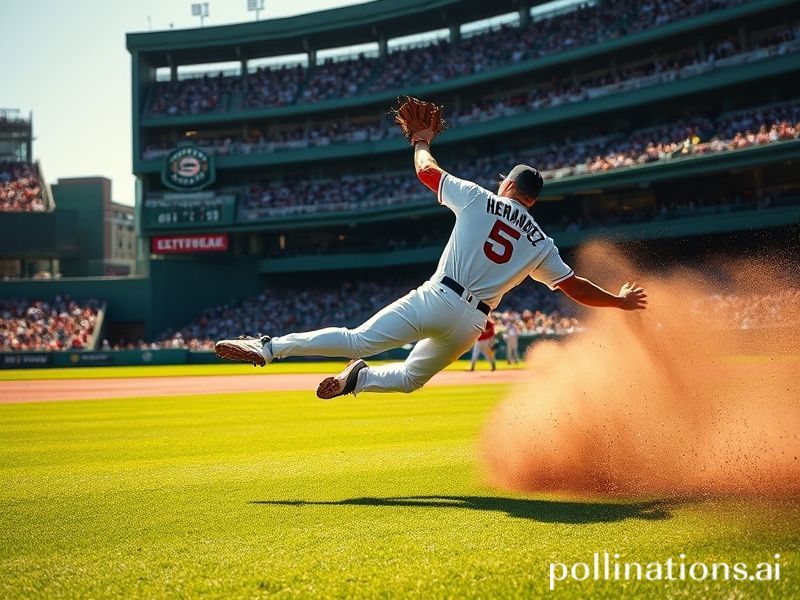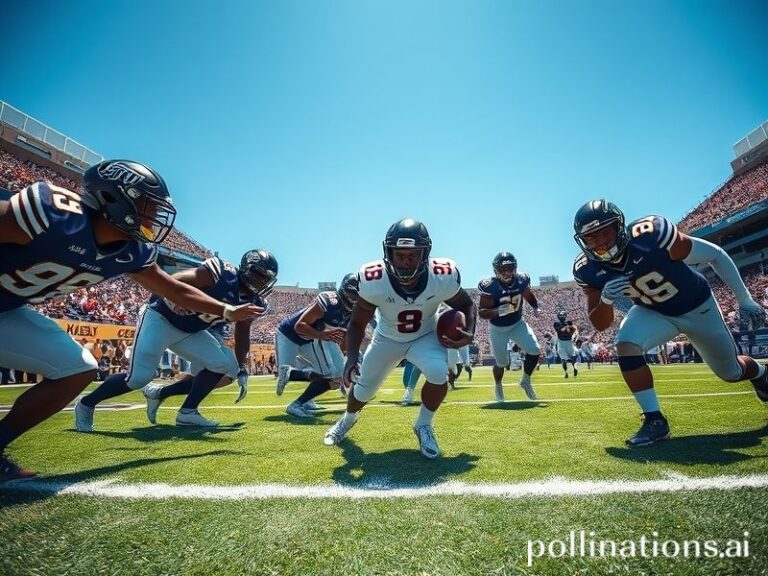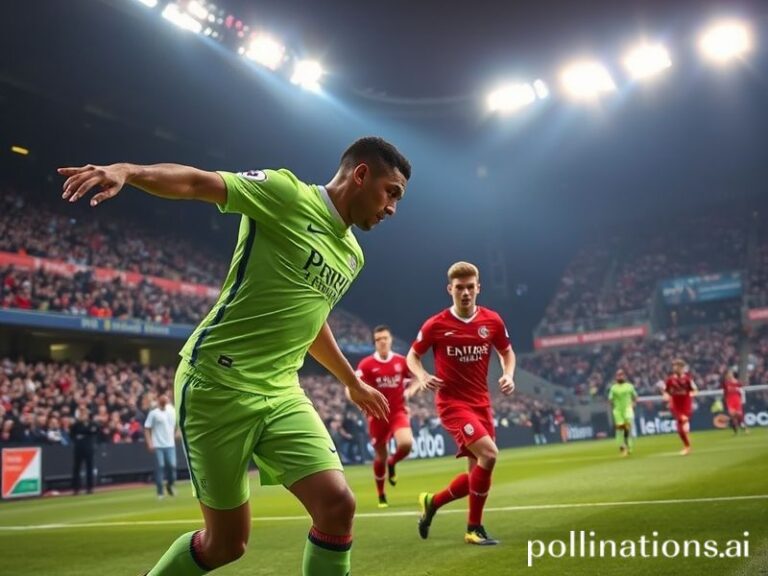Kiké Hernández: The Utilityman Mirror to Our Overworked Planet
Kiké Hernández and the Global Theater of Utility: A Utilityman for an Age of Generalists
by our correspondent in the cheap seats, somewhere between the left-field foul pole and existential dread
Somewhere in the Fenway Park grandstands—where the beer is $15, the hot dogs are $8, and the existential dread is complimentary—Enrique “Kiké” Hernández just finished playing his fourth different position in a single October evening. A few time zones east, a Berlin tech recruiter scrolling through LinkedIn at 2 a.m. sees the highlight clip and mutters, “Finally, a human Swiss-army knife.” In Lagos, a forex trader toggling between the World Series feed and the latest naira meltdown thinks, “I, too, am asked to cover three bases at once.” And so the legend of Kiké Hernández—baseball’s preeminent utilityman—leaks, drip by drip, into the planet’s collective cortisol stream.
For the uninitiated, Hernández is not a superstar in the glossy, endorsement-drenched sense. He’s never led the league in anything except positional flexibility and clubhouse karaoke. Career OPS? Respectable, but it won’t get you a statue outside Dodger Stadium. Yet every October, when the leaves turn and the stakes metastasize, managers start treating him like a universal adapter in a hotel room full of weird European plugs. Need a second baseman who once pitched in high school? Plug in Kiké. Need a center fielder who can also hit left-handed sliders from Japanese closers? Still Kiké. It’s as if the ghost of neoliberal efficiency possessed a baseball glove.
The international significance of this should not be underestimated. In an era where the World Bank politely asks Ghana to diversify its economy while hedge funds short the cedi, Hernández is the patron saint of diversification. His WAR (Wins Above Replacement) is less a statistic than a metaphor for every gig-economy driver who’s simultaneously delivering noodles, trading crypto, and ghost-writing someone’s MBA thesis. The IMF could save itself a lot of slide decks by simply projecting his Baseball-Reference page onto the wall at the next G20.
Consider the geopolitics. Taiwan’s semiconductor industry is currently praying that one engineer can somehow cover both lithography and supply-chain logistics; Kiké has already proven that one man can play second, short, and right without pulling a hamstring or sparking a trade war. Meanwhile, the European Union—fresh off another summit that accomplished the square root of nothing—quietly wonders if it could loan him out to cover Greece’s debt payments. Spoiler: he’d probably bat .280 while doing it and still find time to photobomb the G7 family portrait.
Yet there is a darker undertow, the sort that keeps foreign correspondents awake in airport lounges where the espresso tastes like remorse. Hernández’s chameleonic brilliance underscores just how disposable specialization has become. The same data nerds who once fetishized the left-handed one-out guy now fetishize positional elasticity. Somewhere a violin prodigy in Seoul is being urged to “add a bit of coding” to her résumé, because the market demands polymaths. Kiké didn’t ask to be the poster child for late-capitalist versatility; he just wanted to play ball. But history, like a manager with a thin bench, rarely asks permission.
And so we arrive at the final irony: in a sport increasingly ruled by exit velocity and spin rate, the most globally resonant figure might be the guy whose greatest skill is showing up early, staying late, and not complaining when asked to impersonate a Gold Glove shortstop on four hours’ sleep. It’s a triumph of adaptability that feels both heroic and faintly dystopian, like watching a firefighter moonlight as an Uber driver because the flames never sleep.
Conclusion: Kiké Hernández will not single-handedly solve climate change, nor will he rebalance global supply chains. But in a world that demands we all become utilitymen—juggling roles, currencies, and Zoom backgrounds like a circus act on amphetamines—he offers a grim sort of hope. The next time you’re patching together three freelance gigs while your phone pings with news of another currency collapse, remember the man who patrols center field at 10 p.m. and second base by midnight. If the planet is going to burn, we might as well do it while fielding our positions competently.







